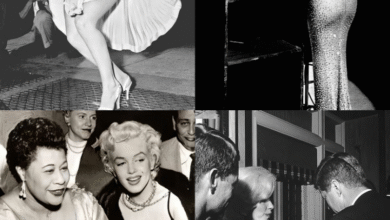Jennifer Lawrence Opens Up About Childhood Anxiety: How Acting Became Her ‘Self-Therapy’
OPINION: This article may contain commentary which reflects the author's opinion.
Jennifer Lawrence, the acclaimed actress known for her powerful performances in The Hunger Games and Silver Linings Playbook, has been increasingly open about her personal mental health struggles. The Oscar-winning actress has candidly shared her experiences with anxiety, a condition she has battled since childhood, offering valuable insights into the challenges of coping with mental health while navigating a high-profile career.
Early Struggles and Diagnosis
From a young age, Lawrence exhibited signs of social anxiety and hyperactivity, which earned her the nickname “Nitro” in school, reflecting her high-energy and sometimes impulsive behavior. In an interview with NZ Herald, Lawrence reflected on how these early traits led her to seek professional help, eventually leading to a diagnosis of anxiety. While traditional therapy initially proved to be less effective for her, Lawrence found a therapeutic outlet in acting. As she revealed in a 2015 Mic article, acting became a form of “self-therapy” that allowed her to express herself and find relief from the overwhelming anxiety she faced in her daily life.
Coping Mechanisms and Management
Through her acting career, Lawrence discovered a sense of purpose and belonging that contrasted sharply with her earlier feelings of self-doubt and worthlessness. This shift played a major role in her mental health journey, helping her develop effective coping mechanisms. In addition to her passion for acting, Lawrence has relied on prescription medications, including Prozac and Xanax, to help manage her anxiety. As she explained in Mic, compartmentalizing her public persona and personal life has also been a crucial strategy in handling the pressures of fame.
Lawrence also emphasizes the importance of self-care and mindfulness, taking time for activities that help her reconnect with herself. Acknowledging the impact of stress, she has shared that focusing on simple, grounding tasks—like picking up dog poop—helps her find moments of peace amidst the chaos of her life. She also credits her strong support network of family and friends for playing an essential role in her ability to stay resilient.
Burnout and Career Reflections
Amidst the overwhelming success of The Hunger Games and winning an Oscar for Silver Linings Playbook, Lawrence has spoken openly about her experience with burnout. The rapid pace of her career and the pressure of public expectations began to take a toll on her mental health. In interviews, she described feeling like she had lost control over her own career decisions, leading to a period of reflection and a career hiatus following her role in Dark Phoenix (2019). This break allowed Lawrence to regain her balance before returning to the screen in Don’t Look Up (2021), which she described as a necessary step for her well-being.
Public Discussions and Impact
Jennifer Lawrence’s openness about her mental health struggles has been a game-changer for fans and the broader public discourse surrounding mental illness. Her willingness to share her story in interviews, such as those with Madame Figaro (2013), The New York Times (2015), and bpHope (2018), has been praised for breaking down the stigma surrounding anxiety and other mental health issues. By discussing her own experiences, she has encouraged others to come forward and seek help, signaling that mental health struggles are not something to be ashamed of.
This is particularly important given that, according to the National Institute of Mental Health (NIMH), approximately 18% of the adult U.S. population experiences anxiety disorders. The stigma associated with mental health issues often prevents individuals from seeking the help they need, but figures like Lawrence are helping to shift the narrative, making it easier for others to speak up and receive support.
The Importance of Normalizing Mental Health Conversations
Lawrence’s transparency contributes to a growing movement aimed at normalizing conversations about mental health. As more public figures openly address their struggles, it fosters a culture of understanding and acceptance. For Lawrence, her role in sharing her journey serves as a reminder that even those who appear to have it all face real challenges. It is a message that resonates deeply with her fans and has the potential to inspire change.
Jennifer Lawrence’s courage in confronting her mental health struggles head-on, coupled with her advocacy for self-care and therapy, marks an important moment in the ongoing effort to destigmatize mental illness. Her openness has empowered many to reflect on their own well-being and seek the support they may need—demonstrating that vulnerability can be a powerful tool for change.
Conclusion
Jennifer Lawrence’s journey with anxiety is a testament to her strength and resilience. By sharing her personal story, she has become a beacon for those struggling with similar challenges. Her advocacy for self-care, therapy, and the importance of community support highlights her commitment to fostering a healthier conversation around mental health. As she continues to inspire audiences both on and off the screen, Lawrence’s legacy extends beyond her acting career, influencing the cultural conversation surrounding mental health for years to come.



